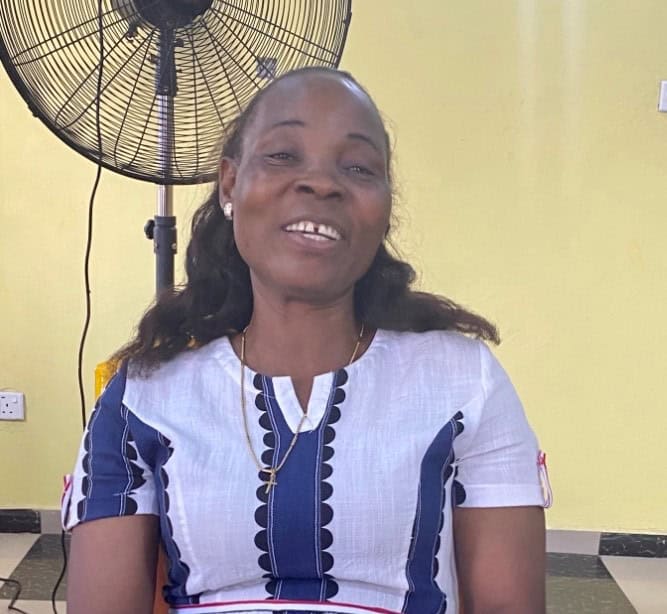Nigeria boasts a thriving community of women entrepreneurs. In fact, the country has the world’s highest proportion of activity by women entrepreneurs, comprising a remarkable 23 million women who command 41% of the country’s micro-businesses. Beyond the statistics, these women are the unsung heroes of resilience, contributing to their families and shaping the fabric of Nigerian society.
Yet, within this entrepreneurial tapestry, a quiet struggle unfolds. Despite their significant contribution, women entrepreneurs in the oil-producing nation of 200 million people face a formidable challenge – a mere 10% of loans from Financial Service Providers (FSPs) reach women-led businesses.
This financing disparity is not just a number; it embodies the hurdles women like Shakirat face. A single mother of four and owner of a local grocery business in Lagos, Nigeria. Her journey to secure credit for her grocery business paints a poignant picture of the countless women navigating an arduous financial landscape often overlooked.

Shakirat’s success, securing access to credit after three years of persistent efforts, marked a transformative moment in her economic journey. The impact extended beyond personal success as she accessed credit, scaled her business, and fulfilled her dream of sending her children to receive a formal education.
Her story underscores that empowering women has widespread benefits. Investing in women’s empowerment correlates with improved education, health, lower poverty rates, and economic development. Shakirat’s story vividly demonstrates that empowering women creates a positive cycle of societal progress and sustainable development.
However, Shakirat’s success stands in stark contrast to the harsh reality faced by the majority of her peers; a staggering 98% of Nigerian women, as reported by the Rockefeller Philanthropy Advisor in 2022, continue to grapple with the absence of access to formal credit markets.
Customer research further reveals there are many barriers that limit women from accessing credit. This includes low financial literacy and unfavorable financial terms, such as higher interest rate, shorter loan tenures and smaller loan sizes. Amongst all the barriers, the most significant is the lack of collateral.
Zoming out from Nigeria to the broader African landscape, a staggering $42 billion credit gap shadows the dreams of businesswomen. Societal norms, gender expectations, and systemic barriers considerably dampen women’s entrepreneurial ambitions, limiting access to education, resources, and the financial support vital for growth (530 million women in Africa are un-or underbanked, according to the World Bank, 2022).
The narrative of women entrepreneurs in Africa, as evidenced by Shakirat’s story, is a testament to their indomitable spirit, deserving not only recognition but a reshaping of the narrative to acknowledge their untapped potential. Through digital financial services (DFS), we can change the landscape, and bridge the gender gap in access to credit, and it makes good business sense; it decreases financial services’ operational costs and can bypass constraints imposed by social norms and limited customer mobility.
Introducing Digital Credit Activation Toolkit
As a growing number of women entrepreneurs in Africa’s most populous nation strive for growth capital, and financial services providers (FSPs) delve into this untapped market, Women’s World Banking steps in with a Digital Credit Activation Toolkit. Brimming with valuable resources, the toolkit focuses on narrowing the gender gap in credit access by outlining a Digital Credit Activation Solution. This solution outlines different components that are critical in enabling more women have access to credit, thus enabling the growth and resilience of their businesses. Women’s World Banking is deeply grateful to Google.org for its support of this toolkit and our work to increase low-income women’s use of digital financial services more broadly.
The Toolkit is crafted to assist FSPs in enhancing and optimizing their digital credit solutions, specifically catering to the needs of low-income women, particularly microentrepreneurs. It offers systematic guidance for financial service providers to develop and execute strategies that improve women’s credit access. The toolkit explores the distinct challenges women face in accessing credit and provides insights into tailoring solutions to overcome these barriers. Its central objective is to narrow the gender gap in women’s access to credit.
Why the Toolkit Matters
The connection between many Nigerian women and FSPs is marked by deep-seated distrust, a sentiment shared by other African women who perceive banks as unsuitable, leading to a widespread lack of confidence in FSPs. On the other hand, despite their eagerness to tap into the women’s market, FSPs need more guidance about effective strategies to connect with these women.
This lack of trust results in a heightened difficulty for women securing loans. Their borrowing is perceived as riskier, pushing interest rates to absurd levels. Adding to the challenge is the requirement of collateral and guarantees by FSPs.
Also, AFAWA points out that women often need more financial and business expertise to meet the expectations set by FSPs. This interplay of distrust, uncertainty, and knowledge barriers emphasizes the pressing need for comprehensive solutions tailored to address the distinctive challenges faced by African women.
Through its recently launched Toolkit, Women’s World Banking encourages FSPs to capitalize on digital credit’s substantial potential to accelerate women’s access to credit. Rooted in Women’s World Banking’s Women-Centered Design (WCD) methodology and design thinking, the Toolkit uniquely places women customers at the core. The five-phase approach (define, diagnose, design, pilot, and scale) empowers organizations to understand women’s distinct behaviors.
Wth increasing mobile penetration rates in Nigeria, the evolution of DFS emerges as a catalyst for transformative impact, propelling financial inclusion, economic growth, and empowerment.
